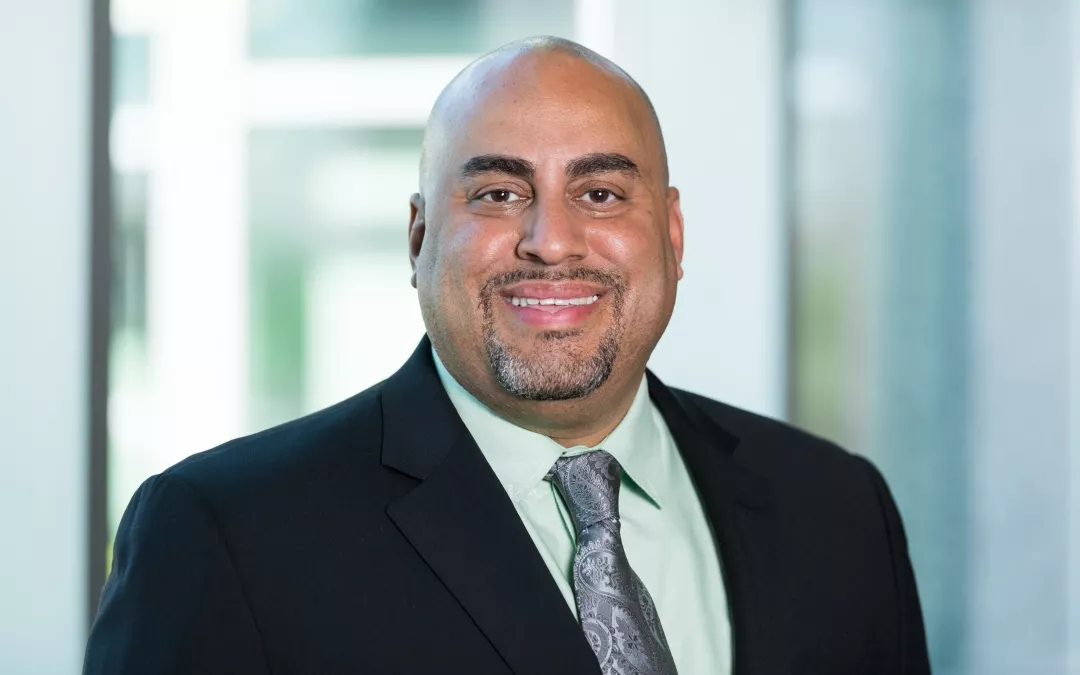
The Extra Space Storage BIPOC Employee Resource Group recently met with Senior Vice President of Operations Rashede Peoples for a glimpse into his career and his thoughts on creating diversity, equity, and inclusion in the workplace.
Peoples joined Extra Space Storage in 2014 and currently oversees operations on the West Coast and Southern California. In this conversation, he talks about leading with empathy and building greater inclusion by making a genuine effort to listen to others and understand their backgrounds. Below are highlights of the discussion.
A: I started in October 2014 as a District Manager and worked my way to Dallas, TX where I became a Division Vice President after a couple of years. Now I’m in my current role as Senior Vice President of Operations for the West Coast and Southern California. It’s been a great journey and I’m as excited today as I was the first day I came to the organization.
A: When I think of those three words, there is harmony among them. Our population in the United States is so diverse. So when you focus on diversity, that inherently allows everyone to feel included. Once you feel included, that creates confidence and helps one be the best version of him or herself. That confidence helps people put their best foot forward and be included in different opportunities. So the focus on diversity creates a feeling of inclusion and confidence, and gives people equal access to opportunities. That’s where the equity comes in. So that’s how I like to look at those three terms; there’s harmony among them.
A: I think one of the more challenging aspects of any environment is feeling like the minority. Whether I’m a man walking into a room of women or vice versa, it can be very challenging anytime you feel like you’re the minority in the conversation of the room. There’s definitely a lot of strategy that you have to employ to navigate that successfully.
A: My undergraduate degree was in Psychology, so I’ve always been infatuated with people. I’ve always been infatuated with different backgrounds, cultures, and foods, so it comes a bit more naturally because I have a passion for it. When I’m speaking to colleagues or other people, I always want to understand where people come from and what’s built them into the person that they are today. Ultimately that leads to a feeling of inclusion and synergy in working together. So that’s my approach–be passionate about people and be open to taking an interest in them once you get an opportunity to listen.
A: Hopefully, I’m able to do that successfully. I think everyone thinks about that–am I doing this successfully? Again, it comes back to listening and being open to others’ opinions and then acting on feedback. I think that’s the most important part of this. Once you’re open to listening, if you get the feedback that you’re asking for, then what do you do with it? Ultimately that seems to help the most in supporting a sense of inclusion and belonging.
A: First of all, be an ally for integration and inclusion. To give you some more context on that, professionally throughout my career, and growing up, I’ve always tried to find a way to fit into one category or another. In one part, out of fear of not being accepted, but more in hopes of being embraced enough that I would be judged by the content of my character and the performance that I put forward within the organizations I’ve worked for, instead of being judged by the color of my skin or the sound of my name. So that’s made me cognizant of being an ally for integration and inclusion. When we focus on diversity it reminds us of the collective power of different points of view. I often feel like I’m one aspect of Dr. King’s dream, and I always aspire to make sure everyone has the same access and reality of inclusion that I’ve earned through my career. So, be an ally for integration and inclusion. As Leaders, if we can start there, there’s so much positivity and so much good that can come from that in moving forward diversity, equity, and inclusion overall.
A: You have to be able to reflect. Reflection is what allows me to slow down and be an active listener. Sometimes, you learn after the fact. After you have a conversation you might wonder, “Did I interpret that the right way?” Or, “Was I empathetic enough in that conversation?” It’s only through those conversations with yourself that you can now come to the next conversation and learn where there may have been some opportunities, or how you may have made someone feel, and maybe there’s an opportunity to do more. For me, it’s the lessons that come from conversations and experiences that allow me to be a better practitioner of empathy as a leader. If we don’t immerse ourselves and these environments and conversations, then we’ll never improve those areas. As an organization, that has to be something we focus on.
Extra Space Storage is committed to creating a more diverse and inclusive workplace. Want to join us? Visit careers.extraspace.com to learn more about our company culture and job opportunities.
Moving to Miami? With its diverse neighborhoods, vibrant cultural scene, and year-round sunshine, Miami is…
Extra Space Storage is thrilled to announce the grand opening of a new facility in…
Our success at Extra Space Storage is attributed to the exceptional individuals who work here.…
Different than designing a home library or simple bookshelf organization, the bookshelf wealth decor style…
The remarkable individuals at Extra Space Storage are the driving force behind our success in…
Extra Space Storage recently opened several self storage locations in various markets throughout the Houston…
This website uses cookies.